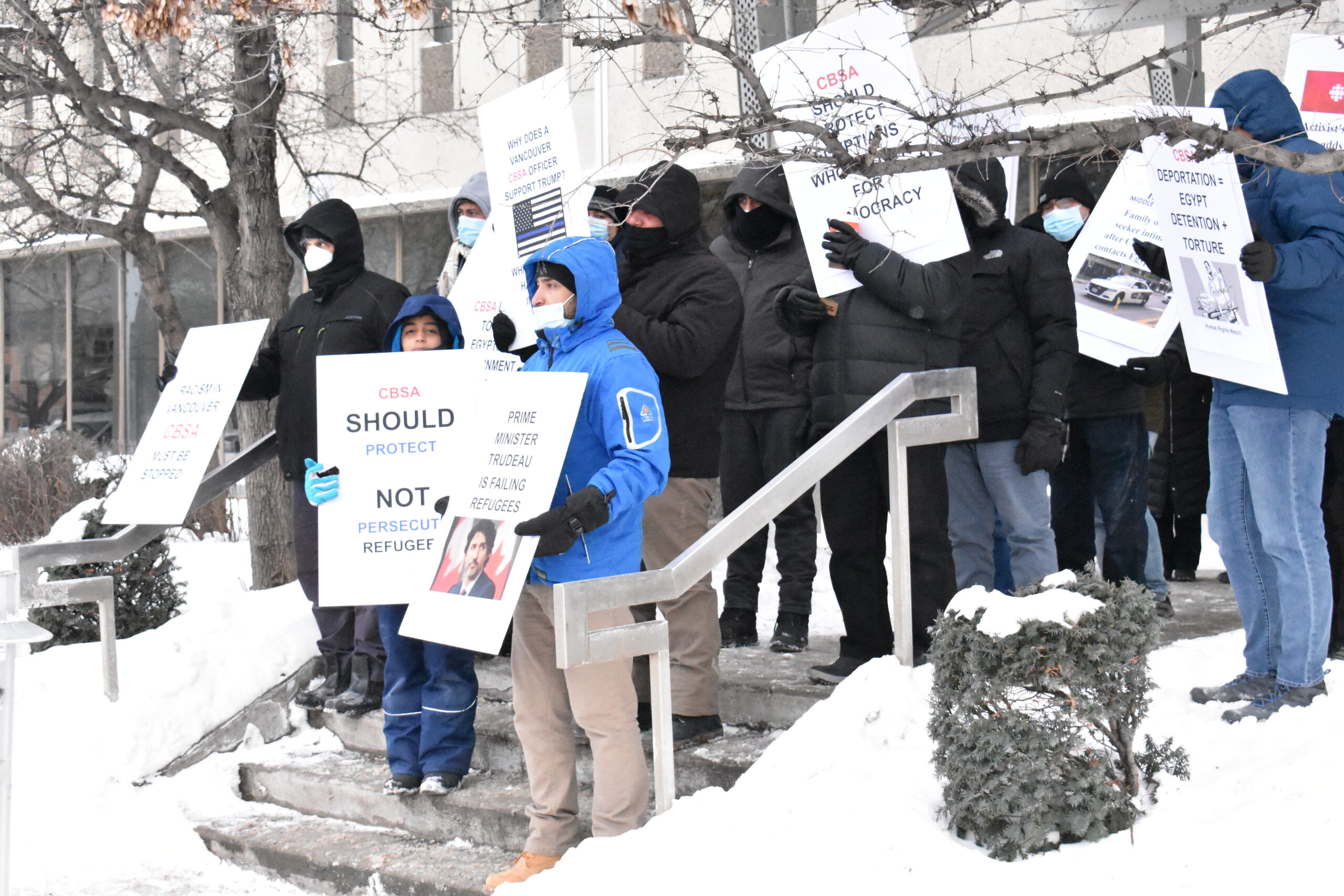Protesters rally outside the Prime Minister’s constituency office to voice their displeasure regarding the refusal of five Egyptian families seeking asylum in Canada
Across Canada several groups protested Vancouver’s Canadian Border Service Agency’s (CBSA) refusal to grant five Muslim Egyptian families refugee status in Canada, due to allegations that they were associated with a political party connected to the Muslim Brotherhood.
Dozens of people protested outside Justin Trudeau’s constituency office in Montreal on Jan. 29, along with groups in Vancouver, Toronto, and Ottawa, to voice their opposition of the CBSA in Vancouver for placing these families in a precarious situation, especially if deported back to Egypt.
In 2017, CBSA officers in Vancouver terminated the process of an Egyptian seeking asylum. Though he filed a refugee claim stating he was a member of the Freedom and Justice Party during the 2011 revolution in Egypt, he was deemed inadmissible due to the political party’s association with the Muslim Brotherhood despite the group not being listed under Canada’s list of terrorist entities. The Muslim Brotherhood had a following of over 2 million people and were one of the biggest oppositions to the Egyptian government in 2011.
Mohamed Kamel, one of the organizers of the event, said all CBSA offices but one accepted refugees with the same allegations.
“How can CBSA [in] Vancouver decide to take actions on their own? This is something nobody can understand!” Kamel said.
“We have hundreds of people who have been accepted. Only the CBSA office in Vancouver decided to favour the claim of the Egyptian government.”
According to protesters, CBSA in Vancouver has not provided any proof to support the allegations towards the individuals, and rather, refused admissibility based on the alleged association with the Muslim Brotherhood. Though two families have gone public, none of the five families knew each other before the refusal from the agency.
Protesters and family members are now alleging CBSA Vancouver was acting in bias and islamophobic way, in a press release, stating that “the CBSA’s evidence is sourced from the current Government of Egypt, and right-wing institutions that have exhibited a patterned anti-Arab and Islamophobic bias.”
“We now fear the actions of the CBSA could have the same impact and build on Islamophobia […] as a part of a government agency doing what they’ve done — they’re creating a new level of systemic discrimination,” Kamel said.
The protest coincided with the five-year anniversary of the Quebec City mosque shooting. They want the Minister of Public Safety to intervene in not only helping the refused families but to also recognize the racism and Islamophobia within the CBSA.
“That’s why we’re here today, to call on the minister to take action. He just has to issue the CBSA to follow the Canadian government terrorism list,” said Kamel.
Photo by Gabriel Guindi
